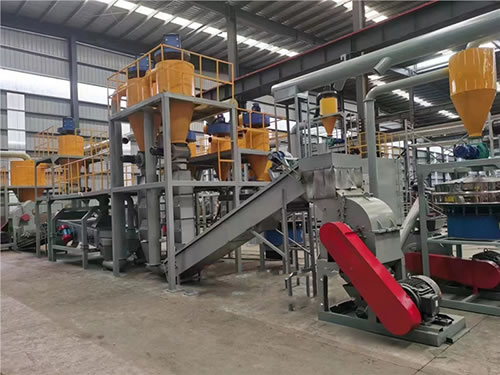Promoting Sustainable Development: Cambodia Adopts Advanced Lithium Iron Phosphate Battery Recycling Technology to Process Pebbles

In a groundbreaking move towards sustainable development, the Kingdom of Cambodia has recently adopted cutting-edge lithium iron phosphate (LiFePO4) battery recycling technology. This innovative approach not only aims to address environmental concerns but also seeks to transform the way waste is handled in the country. The focus of this project is on processing pebbles, small rounded stones that are abundant in Cambodia's riverbeds and have long been considered a nuisance due to their tendency to damage fishing nets and boat propellers.
The adoption of LiFePO4 battery recycling technology is part of a broader initiative by the Cambodian government to promote green energy solutions and reduce reliance on non-renewable resources. LiFePO4 batteries are known for their long lifespan, safety, and stability, making them ideal for various applications ranging from electric vehicles to renewable energy storage systems. However, as with all batteries, they eventually reach the end of their useful life and require proper disposal or recycling to prevent environmental pollution.
The process involves collecting spent LiFePO4 batteries and transporting them to specialized recycling facilities equipped with state-of-the-art equipment designed to recover valuable materials such as lithium, iron, and phosphate. These materials can then be reused in the production of new batteries or other products, creating a closed-loop system that minimizes waste and conserves natural resources.

In an innovative twist, the Cambodian government has identified pebbles as an ideal raw material for use in LiFePO4 battery recycling processes. The pebbles, which are typically discarded as useless debris, contain minerals that can be extracted and refined for use in battery production. By utilizing these locally sourced materials, Cambodia can reduce its dependence on imported raw materials while simultaneously finding a productive use for what was once considered a nuisance.
This project not only addresses environmental concerns but also provides economic opportunities for local communities involved in the collection and processing of pebbles. It offers a sustainable solution to waste management issues and promotes the development of a circular economy within Cambodia. Additionally, it sets an example for other countries looking to implement similar sustainable practices and showcases Cambodia's commitment to being at the forefront of environmentally friendly technologies.
As the world grapples with the challenges of climate change and resource depletion, Cambodia's adoption of advanced LiFePO4 battery recycling technology represents a significant step forward in promoting sustainable development practices. By transforming something as simple as pebbles into valuable resources for clean energy production, Cambodia is demonstrating how innovative thinking can lead to positive changes that benefit both the environment and local economies.